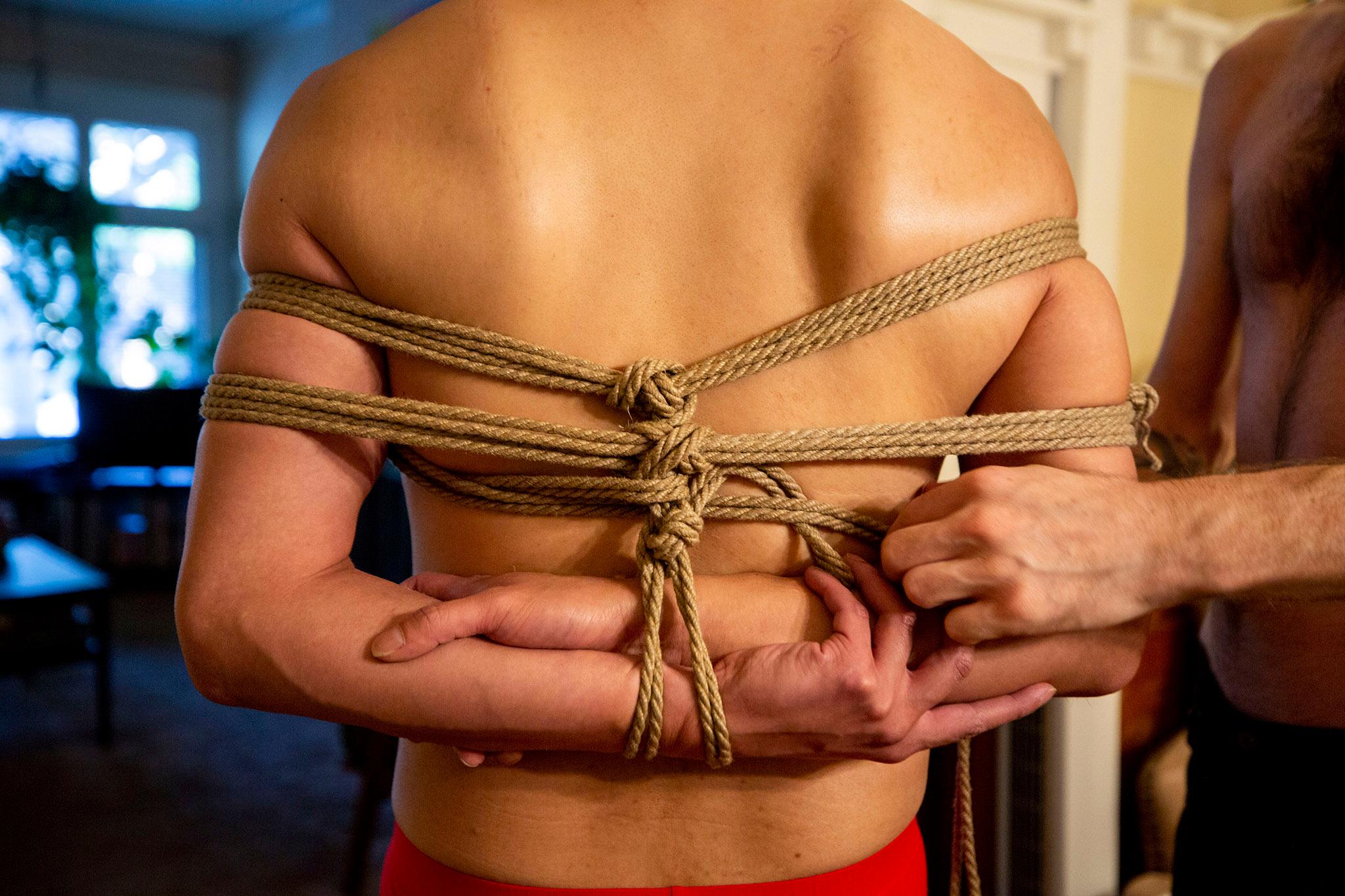These last few weeks, a contemporary opera has taken shape in the living room of director Nathan Hall's home in Speer.
On Thursday evening, a group of performers and staff sat on chairs and on the piano bench as the show's DJ, Issac Linder, played smooth, pulsing techno music from their laptop. In the center of the room, two actors stood, practicing the blocking for a scene involving Shibari, a type of bondage art. Opera performer Lars Preece pulled out some ropes, and slowly wrapped them around his scene partner Jerome Síbulo, binding his arms back with intricate knots. As they moved through the scene, Hall periodically checked in on them, and the actors joked back and forth as they discussed the blocking.
The scene ends with the opera performers singing a check in. "How are you?" one asks. "I'm good. So very good," the other sings in reply. When they've run it through, Hall asks again how they're doing, if they need water.
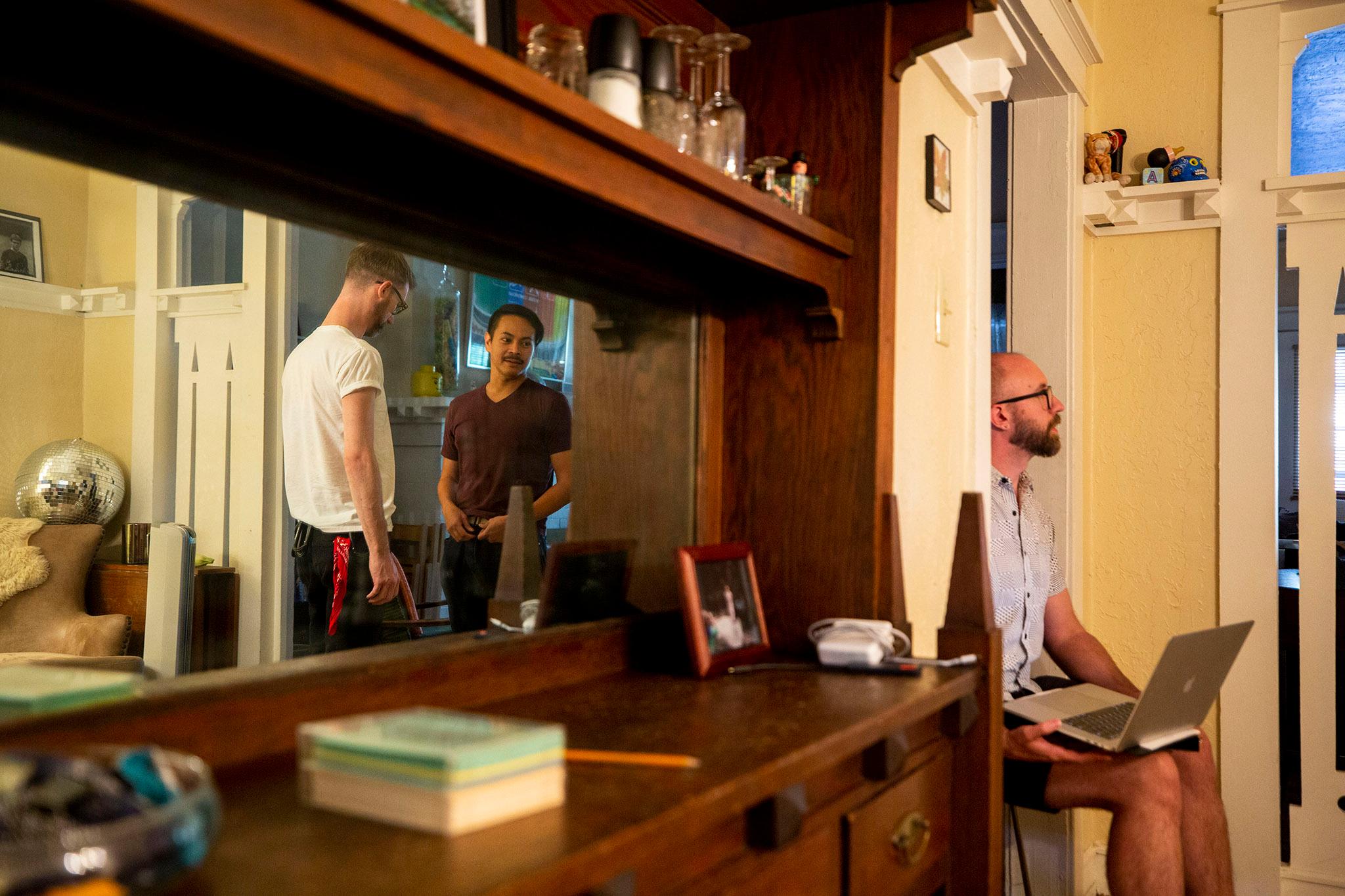
They're rehearsing a contemporary opera called "Unbound", a multimedia, musical kink show about a gay man's exploration of sexual desire and search for sexual fantasy. Though it's erotic, it's not meant to be explicit. It's an odyssey of sorts through a Swedish fetish club, where the main character, Guy, has multiple encounters that don't quite feel right. In the end, he meets someone that shares with him an emotional connection and a kink experience involving consent.
Hall first sketched the idea for "Unbound" on a napkin while on a plane home from a trip to Sweden, where he'd been doing a composer residency in 2017.
While in Stockholm, he had wandered into an adult bookstore arcade.
"I had had such an unusual experience there that was, like, the opposite of what I had expected," he said.
He'd expected the space to be sweaty and loud, with techno music blasting and guys checking each other out as they shopped for sex toys.
"Instead, it was the most quiet, ambient experience, with nobody there, that I'd had," he said. "And I decided I wasn't going to be disappointed by that. But instead, it was actually really inspiring."
On the plane, he mapped out a vision of a show where a main character learns that his fantasies don't have to be validated by somebody else for him to feel empowered.
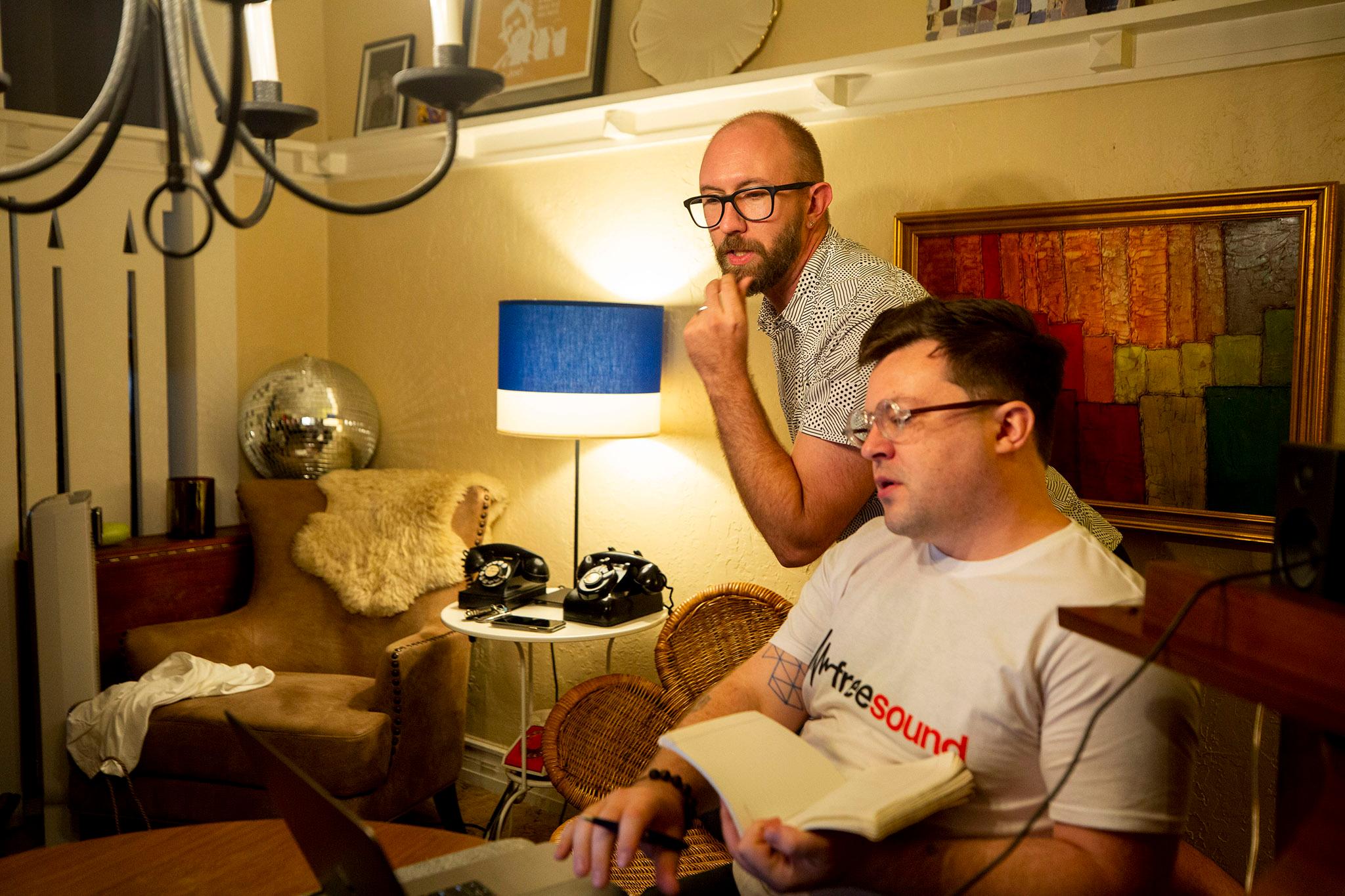
At the time, Hall had no idea that the sketch would become a full-length opera. He didn't even really like opera as a medium.
"I thought, how could I get my idea across about this feeling of self empowerment, and power, and identity, and sexuality without going into like clichés," he said. A musical where someone belts their heart out didn't seem right. He realized an opera could convey the drama of that narrative he hoped to tell, and that he could do it his own way.
" I didn't need all this Smoltz and melodrama, and a big orchestra, and people singing at the top of their lungs for 20 minutes the same line over and over. And no one had to die at the end," he said. "You know, these things about opera that I think are kind of strange. But I could still use what I might like about opera to my advantage."
He worked with a librettist, Alan Olejniczak, to create the text for the show, and borrowed some traditions from opera to help convey the narrative.
"Now it had a narrative, it has an emotional arc to it. It could have duet. It could have a chorus, if I wanted it," Hall said. "All those things I like about opera. I like the storytelling. And I love that you can let the music tell the story. You don't always have to let the singing tell the story, either. There can be moments of activity and rest."
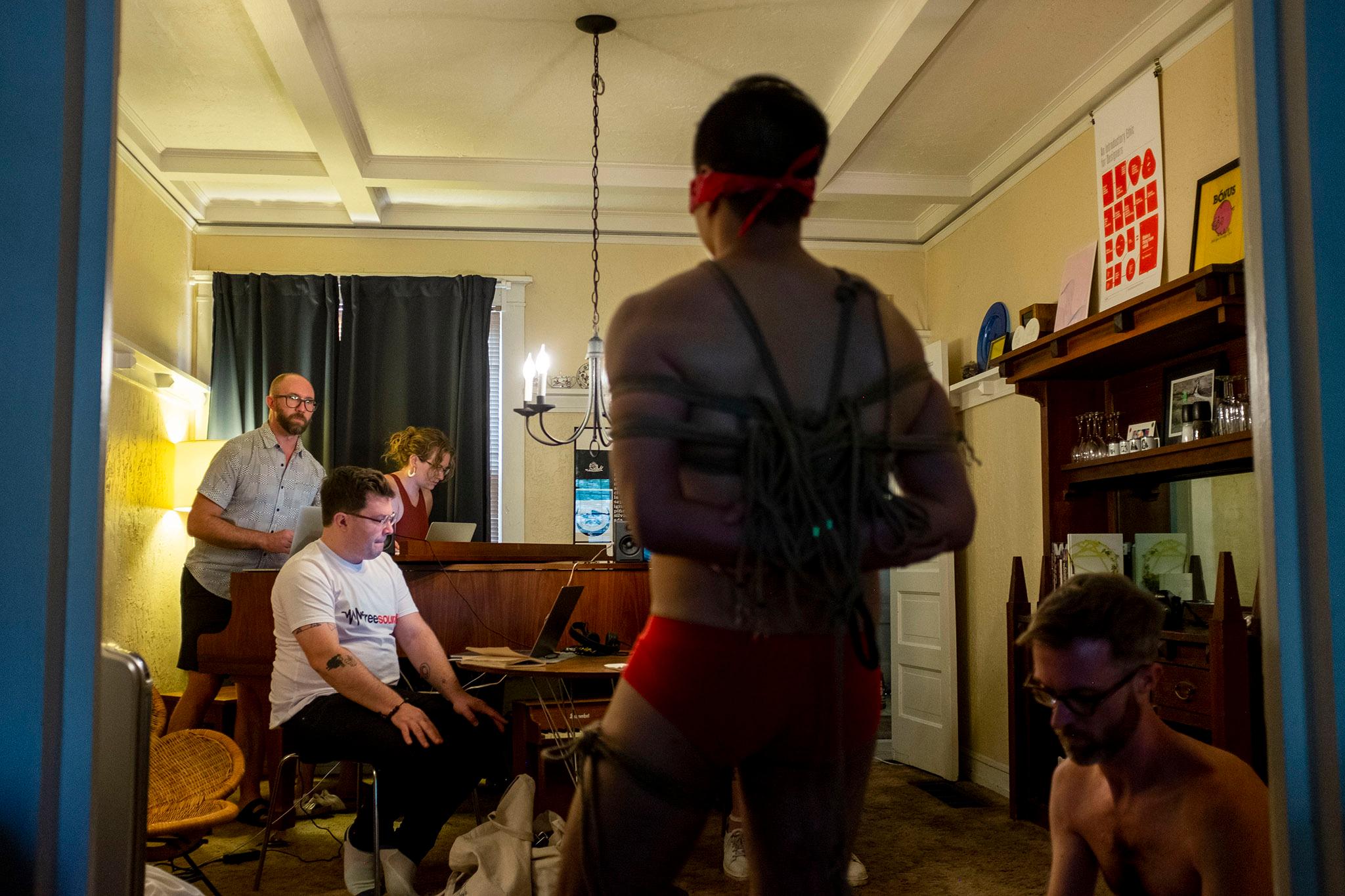
Hall said opera and classical music are often misunderstood.
"It can feel really stuffy. It can feel overly drawn out. And it can feel kind of elitist for people. And I think that's a very big misconception," he said. "Classical music, as a whole, can be like really relevant and really moving, and actually include things from all parts of people's lives,"
A lot of people feel that opera isn't for them. After all, many cinematic portrayals of opera seem to be fish-out-of-water experiences, where the characters we identify with are brought to the opera for the first time, and feel out of their element.
"I think kink practices are kind of misunderstood like that, too," Hall said. "They can feel intimidating, and scary, and kind of underground. And like, Oh, that's not for me, I don't like whips and chains or anything like that. But there's so much more to that world, and so much more subtlety and beauty and relationship and consent, then than you would ever imagine."
For many people, all they understand about kink is from Fifty Shades of Gray. Hall says it's not a good survey of all there is out there. He said that in writing "Unbound" he worked to make it more accessible, where people might see themselves represented.
"There's a wide variety of ages and sexualities and race in the show," Hall said. "I think when you can see yourself in an art form, you feel like it could be more relevant to you."
Leah Podzimek, the show's assistant director, is an opera performer and artistic producer who's been doing a lot of contemporary opera work in the Denver art scene. She says this production appeals to her because it has the capacity to reach different audiences in different ways.
"That's how we expand the audience for opera, is making it relatable to another pocket of humanity," she said.
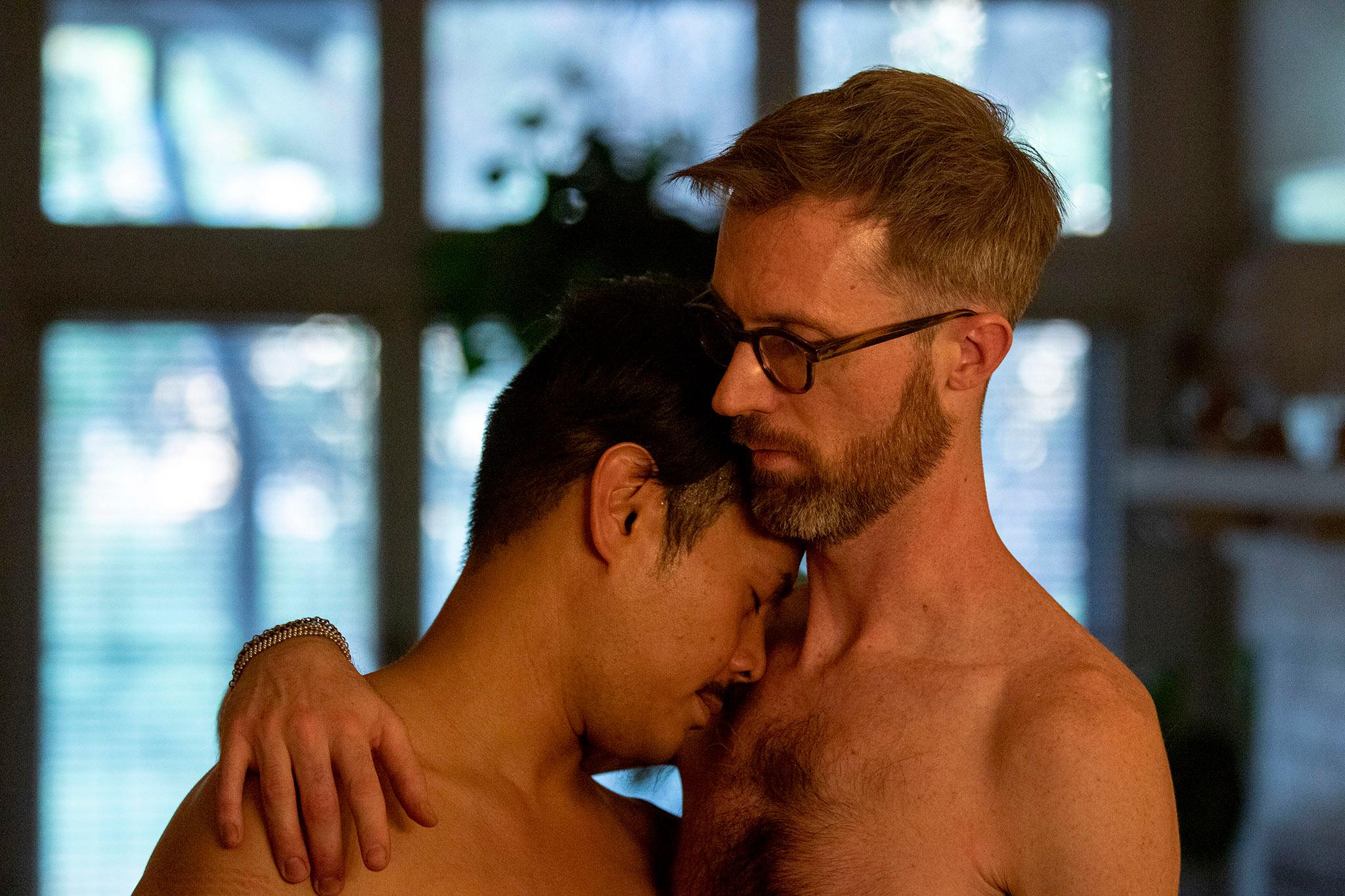
Everything from the show's music to the performance venue is designed to immerse the audience in the ambience of the fictional club.
Hall has a doctorate in music composition. He took his background in composing classical music and translated that into the music you might find in a club -- synthesizers, electronic chords, heavy bass drum beats.
Issac Linder plays a DJ in the show, but they also play and mix the show's score in real time. And though the music is nontraditional, it helps to convey the characters' arcs and emotions as traditional operatic scores do. Hall says that just like the "Guy" character, the music starts off a little bit uncertain. It changes as he does, and, when Guy meets the third person -- the one who offers him a positive, life-changing experience -- it peaks.
There are also choral elements, where the cast join in to echo some of Guy's feelings, or to immerse the audience further in the set, and kaleidoscopic video projections of heavily edited clips from adult films that help the viewer feel like they're in a kink club.
While most of the rehearsals have taken place in Hall's living room, the performance itself will be a site-specific show staged out of Studio Friction, an aerial and ropes studio, which is set up for the kind of bondage rigging involved in the show. Guests at the performances will be scattered throughout the space, rather than seated in a traditional stage-audience format. And when the show is over, guests who pay an extra fee can get an hour-long rope lesson from the folks at Studio Friction.
Not only did the two actors involved in the bondage scene take ropes courses to learn how to perform it safely and with consent, but the whole cast took Shibari courses there, so that they all might know and understand what goes into the practice, and be considerate of the actors incorporating it.
Jerome Síbulo, who plays Guy, and Lars Preece, who plays the "Dom" character, said that they set what they called "fences," or boundaries, as they rehearsed the intimacy choreography. They would frequently communicate what they weren't comfortable with, if something hurt or didn't feel right, or if they needed a break. Those conversations might appear during the performances, too -- if something doesn't feel right, they can say so while performing.
"What we're doing isn't staged, so there has to be this honest check-in, this honest connection, a lot of trust," Síbulo said.
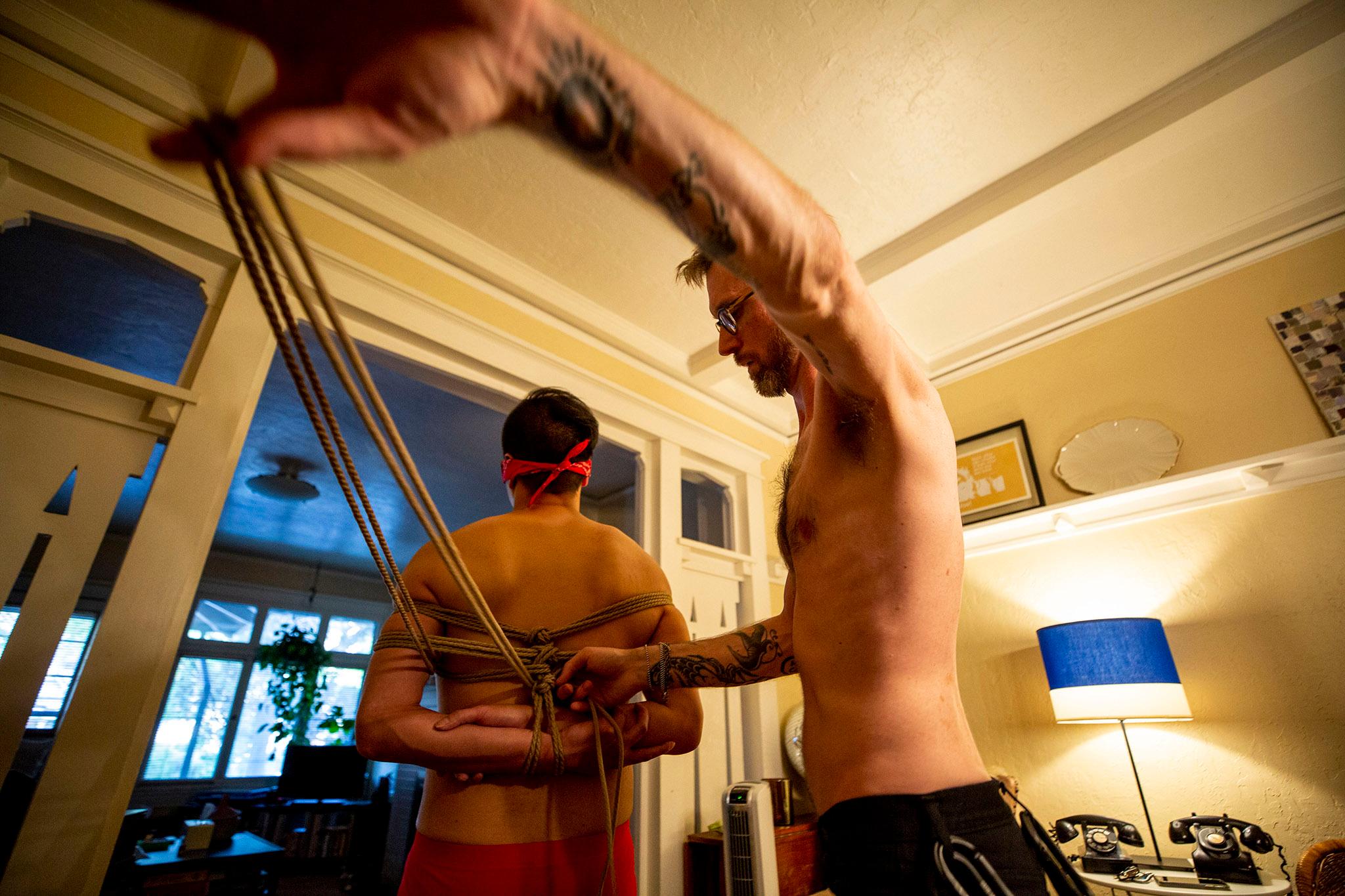
Hall invited an intimacy coach to help guide and support the cast and crew.
"I wanted people to feel like they have the language to have consent," Hall said, "and to talk about what feels good to them and what might feel like, This is a no-go zone today, just based on how I'm feeling. Or, Today, you can touch me here, but tomorrow, we might have to reevaluate. And that was really important for a show like this, which is very vulnerable."
Much of the show itself is about consent. Hall incorporated those conversations into the scenes.
"I wanted the opera to parallel what a good consent practice seen in bondage would be like," Hall said. "We even talk about, this is a good safe word. If you have something that makes you uncomfortable, you can tell me this."
If anything ever feels uncomfortable, they change it to accommodate the actor's needs. Hall also had everyone check in with each other during rehearsals.
"We just make sure, you know, Is your body feeling the same? Do you have any aches and pains?" he said. "You have some care involved, so it doesn't go from zero to 100 of intensity."
"Unbound" is about discovery -- about being surprised and moved by a new experience.
Similarly, Hall hopes the audience comes away surprised and moved.
"Whether or not I'm curious about bondage, or kink, those things can happen," Hall said. "And they are not something that always has to be relegated to the shadows. It doesn't have to be something that's so secretive."
It's been a growing experience even for some of the cast and crew. Todd McCracken, who plays one of the men Guy has an encounter with, says this show is different from the typical opera productions he's performed in.
"It's a wonderful stretch," he said. "It's a wonderful push and shove to grow. Sometimes what you run into is what you need."
Hall said it can be a part of your growth as a person to take risks and try something new -- whether it's opera or bondage.
"If they got a good show with some fun music, and they had maybe a reconsideration of what opera could be, then I would just be thrilled," Hall said.
"Unbound" runs 8/27, 8/31, 9/2, and 9/4 at 8:00pm, and 8/29 at 3:00pm at Studio Friction, 740 Lipan Street, Denver. Guests 18+ can buy tickets until August 26. Seats are $30 for general admission or $60 for an additional hour-long rope tutorial and prime seating.

